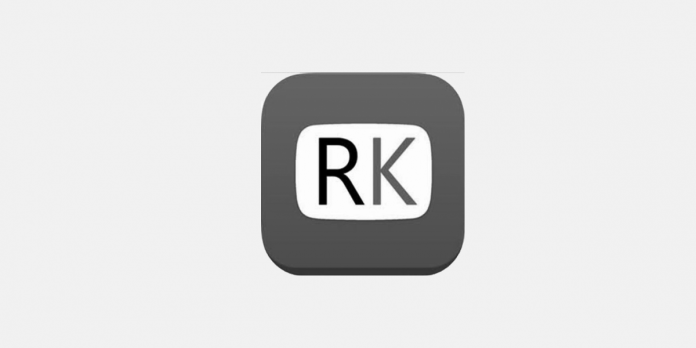Commerce is a study of trade and business activities such as the exchange of goods and services from producer to final consumer. Commerce is a field in which students who have an interest in the field of financial information/transactions, trading of economic value, etc. often consider taking up after completing 10+2. Students who are looking forward to pursuing a career in Commerce have a wide range of choices before them.
In India, the commerce stream is quite a popular choice, as most students feel that the stream offers them a wide range of career options to pursue after class 12, that would bring them both success as well as financial security easily.
Candidates can pursue the Commerce course at the undergraduate (UG), postgraduate (PG), diploma levels as well as at the doctoral level. UG level Commerce courses offered to aspirants include B.Com, BBA, CA, CS, BBA LLB, BBM, BSc, etc. At the PG level, popular Commerce programs are MCom, MBA, MPhil, MSc, etc. UG courses in Commerce are of three years duration whereas PG programme are of two years duration.
Among Commerce courses, students can consider selecting from specialized fields such as accounting and finance, banking and finance, accounting and taxation, actuarial science, business administration, applied economics, e-commerce, financial accounting, banking and insurance, human resources, entrepreneurship, accounting and auditing, etc.Â
Eligibility and Top Exams
Candidates can pursue a UG degree in Commerce if they have completed their 10+2 or its equivalent level of education in the commerce stream. Candidates who have studied subjects like accounts, Mathematics and Economics, etc. are also eligible to apply.
To secure admission in the PG level Commerce course, candidates should have completed their graduation degree in commerce stream from a recognised college/ institute.
However, many colleges/universities follow different criteria for admission in the PG level Commerce course.
Top Commerce Exams:
The Institute of Cost Accountants of India (ICAI)
The Institute of Company Secretaries of India (ICSI)
Chartered Financial Analyst (CFA)Â ExamÂ
Â
Â
Commerce Courses
Students can pursue Commerce courses at UG, PG and PhD level. The regular Bachelor’s and Master’s degree courses are available full-time as well as part-time. Certificate courses like CA, CS, CFA are available in part-time mode and are very popular commerce courses in India. Students having studied Commerce can pursue their professions in any of the following with the commerce courses offered:
BCom/BCom(H)
Chartered Accountancy
MCom/MCom (H)
Company Secretaryship
MA Economics
CFA
MSc Economics
Cost Accounting
MPhil
BEd
MBA
BA Economics
BBA/BMS
BCom LLB
Commerce is a well-structured course to start your career plan with. If you are trying to find the courses after 12th commerce, with the commerce courses, you learn accounts, finance, and business aspects, and you always have an opportunity to switch to Arts-based on your interests in the field. Commerce stream jobs have the ability to provide high salary if you choose the right path.Â
Key Subjects / Sub-domains
The popularity of this discipline has been growing exponentially during the last decade. Attribute it to the growing economy, professional career opportunities or the high scoring nature of the stream; many students have the commerce stream for their high school education and even after that. While traditionally, commerce stream was limited a few accountancy and economics related subjects, today it covers an array of subjects. The key among them include:
 Economics
During your Class 11 and Class 12, you will deal with basics of economics, Indian economic development, statistics, introduction to microeconomics and macroeconomics.
 English
Commerce stream will have a compulsory language subject i.e. English in most cases. However, the economics that you learn in the commerce stream would be quite different from the other streams and will primarily focus on the basics of language including grammar, syntax, and vocabulary development.
 Accountancy
Accountancy would focus on the basics of accountancy and its theoretical process and financial accountancy, accounting standards, GST, recording of business transactions and other similar concepts in your Class 11. For Class 12, you would be dealing with accountancy for non-profit organizations, partnership firms, companies as well as analysis of cash flow statement and financial statements.
 Business Studies/Organisation of Commerce
Business studies or the organization of commerce is another critical subject for the commerce stream students. In class 11, topics will range from the nature and purpose of business, forms or types of business organizations, emerging business models, types of enterprises, social responsibility and business ethics, sources of business finance, small business, internal trade and international business. During the Class 12 your study topics will include basics of management principles, business environment, planning, staffing, organization, controlling, financial markets, financial management, marketing management and consumer protection.
Mathematics
Mathematics is an optional subject for the commerce students but is important if you want to build a career in the core accountancy or similar domains. The mathematics subject for commerce students includes study of relation and functions, algebra, calculus, liner programming, probability, vectors and matrices.
 Information Practices
Information Practices is another optional subject for the commerce students which is to be picked by them depending on their interest. The subject deals with basics of computing and database management. It covers topics like business computing theory, programming and relational database management system.
We explored some of the career options after Class 12th Commerce. Students need to find their interest while pursuing Class 12 and then set a career goal for themselves. Students are advised to go through the courses and find the one best suited for them and perform well.
Â
Â






